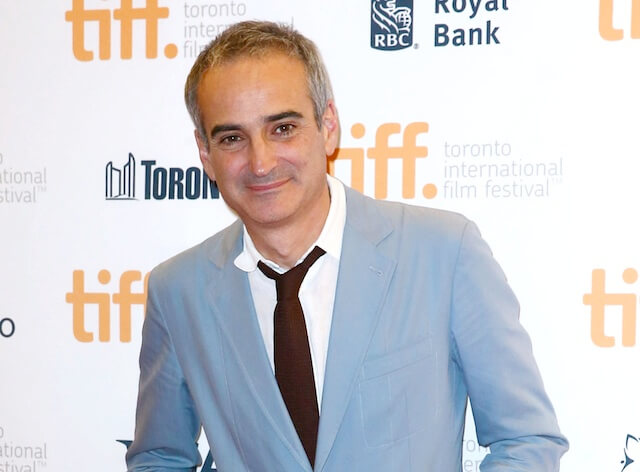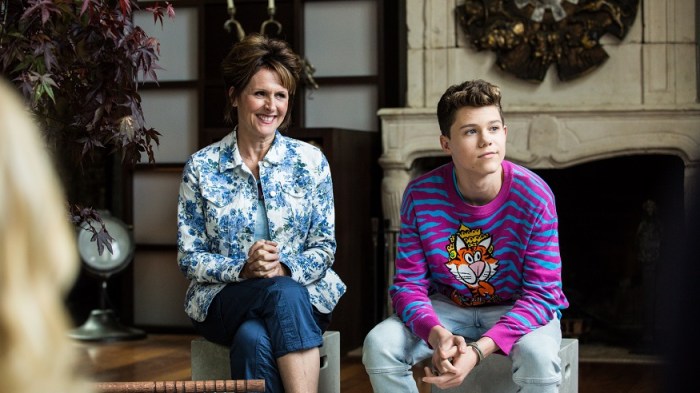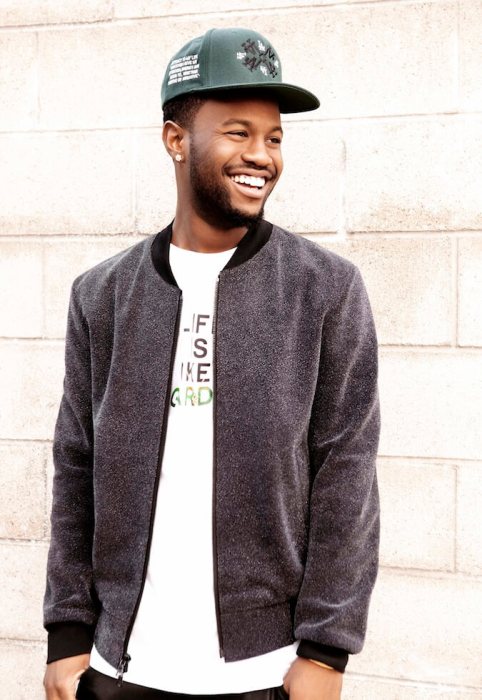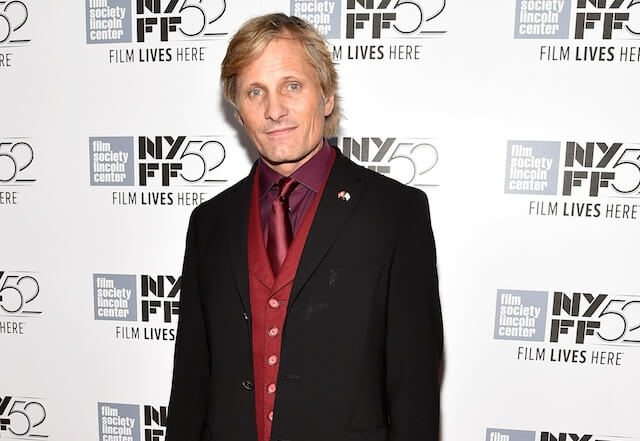Filmmaker Olivier Assayas (“Carlos,” “Irma Vep”) was partly responsible for Juliette Binoche’s big break, and she his: In 1985 she starred in “Rendez-vous,” directed by Andre Techine and cowritten by Techine and Assayas, his first screen credit. They technically reunited for 2008’s “Summer Hours,” but she was just part of an ensemble cast. But with “Clouds of Sils Maria,” she gets the lead role, or at least shares with Kristen Stewart, who plays the cool-tempered personal assistant of Binoche’s very Binoche-y international movie star, who worries that she’s finally being replaced by the young (including a budding star played by Chloe Grace Moretz). This is a project that Juliette originated. What was the original conception when she pitched it to you?
The original idea was more like, “Why don’t we make a film together?” We’ve known each other forever. It’s disturbing how far back we go. I co-wrote, in 1985, “Rendez-vous,” the movie that put Juliette on the map. And it was my first visible writing credit. What I’m saying is we have a very important moment in our lives in common. So when Juliette called me and said, “We never really made a movie together, we only worked once after that and it was an ensemble piece [“Summer Hours”], why don’t we make a proper film?” I thought she had a point. There are a lot of meta references in the film, not only to Juliette’s life as an aging movie star, but also to Kristen Stewart playing someone commenting on younger celebrities.
You can take it seriously or you can take it as a game. I think movie is part serious, part a game. When you see Juliette Binoche as herself, playing someone with a career on both sides of the Atlantic, who is a prestigious European actress at a very difficult moment in her life, suddenly everything becomes real around her. Usually when I make movies you have to forget about what you know about these actors. They had to blend into the narrative, become someone else and drag you into a story. They are completely differently characters; that’s what they get awards for. Here it is completely the opposite. We constantly go back and forth between real life and fiction — not in any kind of heavy-handed way. It’s more like a joke. Although Kristen Stewart is not playing Kristen Stewart. She’s more like her P.A.
But you constantly have in mind that Kristen Stewart’s playing someone who’s different from her. And in a couple scenes there’s the irony of Kristen commenting on herself, which is part of the fun. She has a great screen presence that isn’t always used.
Kristen is amazing. You’d have to be blind not to see it. Even in the tiniest film she jumps out. I remember seeing her in “Into the Wild,” and she just jumped out of the screen. It was just, “Who’s that girl? She’s great.” I had no idea she would grow and go onto bigger things. I had no idea I would work with her. There’s an element of “All About Eve” here, with a younger actress taking the spotlight from an aging legend. But Chloe’s character isn’t particularly evil or even conscious of what she’s doing to Binoche. It’s not about the cruelty of aging. It’s about how to deal with it. It’s not about rivalry. It’s about a woman who’s been there, she has a very precise memory of what it felt like to be there, and she has to accept that she’s in another place, and that eventually a younger actress will look at her the same way she looked at an older actress when she was young. To me it’s about how to come to terms with it. A long time ago aging was something more brutal for actors, and for people in general. Now Juliette is in her early 50s, but she’s absolutely not my definition of an older woman. She can do whatever she wants, and she possibly has the better half of her career in front of her. It would be silly to say all of a sudden the young push her out. But she still has to deal with the fact that she’s becoming a different person. There’s pros and cons. There’s experience on one side, but you also lose touch on your grip on the present. You won’t be able to relate to a younger generation the way people your age will relate to you. But that’s very banal stuff. Technology plays a key role here. People are constantly communicating over cellular devices, and they freak out when they suddenly lose wifi. At the same time the bulk of the film, very pointedly, takes place in the country, with two people talking to each other in person. But it’s not a takedown of technology. Prior to this I did two period films in the 1970s: “Carlos” and “Something in the Air.” At some point that becomes a drag, because you always have to find locations that are exactly like they were, and have actors try to pretend like they were in the ’70s, and so on and so forth. I was just very happy to be making a film in the present tense. And obviously I was concerned about capturing something about the present tense. So I represented how we all function, in a certain way. We have our phones, we have our computers, we Google people. We keep in touch with news or celebrity news in real time. It’s part of how we function. I’m not caricaturing, I’m not criticizing it. I don’t have any bigger ideas about it except for this is how the world works. I was more into dealing with actors and actresses in a film industry that is so embedded into the very present of how society changes. It’s also a quieter, gentler film than many of your other works, which have a nervous anxiety and immediacy to them. Even the music is larger orchestral, with only one moment of loud music: a part where Kristen’s character blasts Primal Scream’s “Kowalski.” I suppose the film is inspired by Juliette. I had to find a note that corresponds to how she functions. So yes, it’s a quiet film in the sense that it’s about something more universal. It’s less about the dynamics of filmmaking than about the very universal human process of facing age, time, mortality, whatever you call it. I wanted to function on a wavelength that’s a bit broader than other movies — not because I have a kind of strategy, but more because I’m dealing with something more universal and basic, in a certain way. Follow Matt Prigge on Twitter @mattprigge
Interview: Olivier Assayas talks ‘Clouds of Sils Maria’ and Kristen Stewart

Getty Images
























